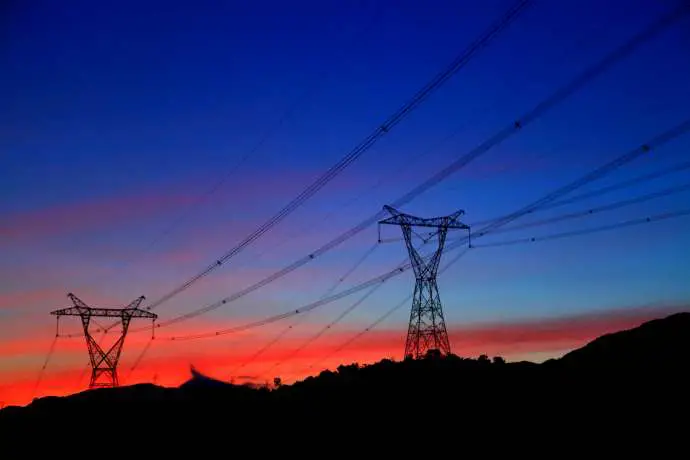STA, 29 August 2022 - The Infrastructure Ministry has drawn up a draft bill to allow the government to declare a state of emergency in case of disruption in electricity or gas supplies. It provides measures such as consumption cuts, state guarantees to buy gas outside the EU, and even departure from environmental standards in case of a switch of fuel.
The draft, which has been submitted for inter-governmental consultation until 26 September, would make it possible for the government to declare a higher or lower level of risk to energy supply in case of existing or expected supply disruptions.
A lower risk would entail preparing for an emergency in the supply and notifying energy companies and consumers to get ready for an emergency and to take measures that are feasible.
A higher level of risk would kick in when a state of emergency is declared in the supply of natural gas and electricity. At this stage all of the national potential for generation of electricity and heat would have to be tapped.
The government would be able to directly decree state-owned companies to take measures to ensure reliable supply of energy.
During the period of higher risk, the provisions of the environmental permits concerning fuel and emission limit values would not apply to power plants, co-generation plants and other installations for which such an environmental permit is required if they needed to switch fuel such as gas for other source.
They would be allowed to derogate from the provisions of the environmental permits as long as they are not projected to exceed or have already exceeded alert levels for sulphur dioxide or nitrogen dioxide in the air.
During such a state of emergency, the temperature of the Sava downstream from the Krško Nuclear Power Plant from 1 October to 31 April would be capped at 3.5 degrees Celsius above the river temperature at the plant's intake, which is half a degree higher than specified now.
When it comes to gas, the parent company would be required to ensure gas storage in other EU member states as of 1 November of the current year in an amount equal to at least 15% of the average annual gas supply of the group under its control to final customers in Slovenia over the last five years.
The draft bill also envisages up to EUR 300 million in state loan guarantees to buy gas in countries outside the EU.
When a lower level of risk was declared, the draft foresees creating additional reserves of substitute fuel for gas-fired power plants for when they need to generate electricity but gas is not available.
Those additional mandatory reserves would be released under the higher risk scenario, up to the level where the mandatory stocks of oil and oil products (for 90 days) are still available.
Final consumers would be required to make a voluntary effort to reduce gas and electricity consumption from 1 October 2022 to 31 March 2023 by at last 15% compared to their average consumption in the same period over the past five years.
State-owned companies investing in electricity production facilities from renewable energy sources with an installed capacity of 250 megawatts or more would have to distribute half the electricity generated annually to households in Slovenia and form a supply community.
The government would decree the temperature of heating or cooling in public buildings and prescribe limits to the lighting of buildings, premises or spaces.
Natural-gas customers would have the right not to connect to or to disconnect from the gas distribution system, regardless of the provisions on priority use of energy products, on mandatory connection to the gas distribution network and on mandatory use of gas for heating of buildings and hot water for households, as set down in the relevant documents, without having to pay a contractual penalty.
Under gas supply contracts in force as the law entered into force, it would not be possible to charge penalties for lower gas consumption than contractually agreed.
Concessionaires for the commercial exploitation of water for generation will pay the same concession for the period between 2022 and 2025 as they did in 2020.
Electricity for losses in the transmission and distribution network would be provided at cost by electricity producers directly or indirectly wholly owned by the state if the price on the Hungarian stock exchange on the last day of June of the current year exceeds EUR 120 per megawatt-hour for the coming year.







